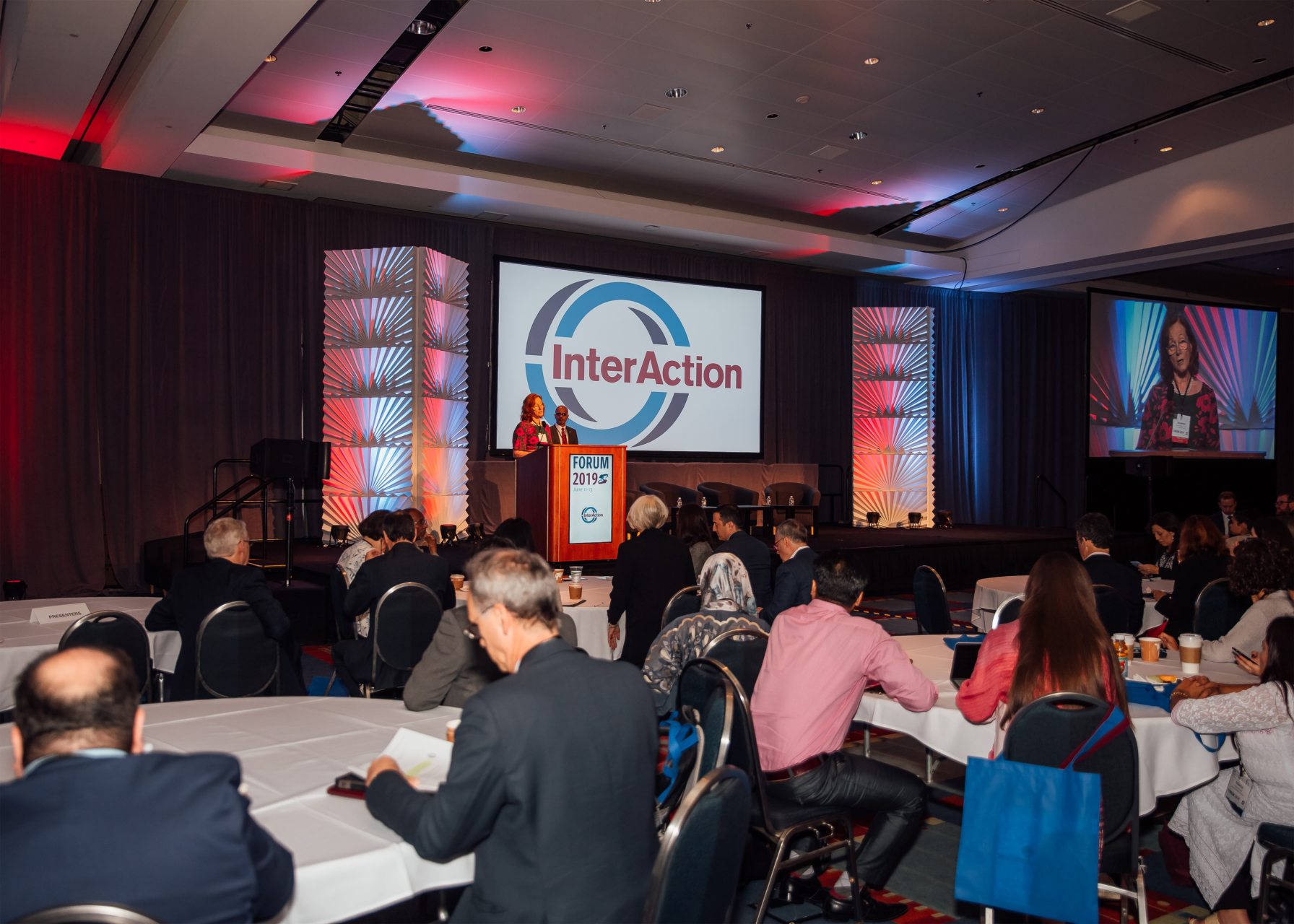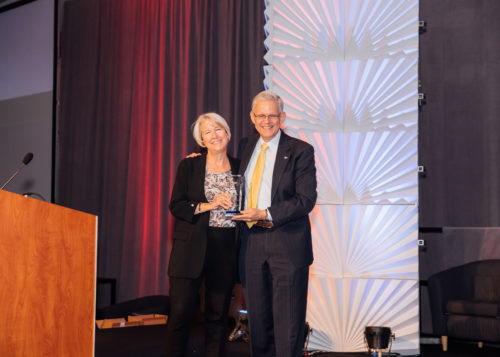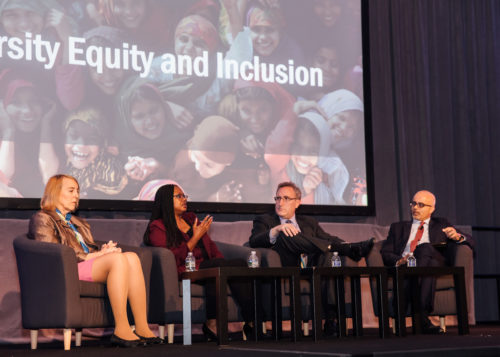
Forum 2019 Highlights
Today, global poverty is at an all-time low, hunger has been cut in half, and safe water is increasingly available.
Yet, there are 68.5 million forcibly displaced people worldwide, 1 in 7 girls in the developing world is married before her 15th birthday and as of June 17, 2019, more than 100 people have died in Sudan protesting for democracy and freedom.
Solutions to global problems like these cannot be delivered in a vacuum.
Last week, InterAction Forum brought together organizations, changemakers, and executives from the public, private, and NGO sectors to create a cross-sector conversation that provided solutions to pressing global challenges.
The Forum’s general session was opened with Kellie Bentz of Airbnb, Michael Gerson of the Washington Post, and Uzra Zeya of the Alliance for Peacebuilding discussing the impact of values-based leadership within their organization and in supporting the organization’s mission.
Gerson reminded the Forum audience that it was the United States’ moral obligation to continue to be a leader on the global stage, “We have a message, ‘The work NGOs do is part of who we are as Americans.'”
More than 500 Forum attendees tackled issues regarding building resilience in fragile spaces, organizational intent, and governance reform and understanding the impact of humanitarian programming on gender equality.
During a breakout session on “Enhancing Refugee Self-Reliance,” Kari Reid, Director of Policy and Advocacy at Mercy Corps spoke about how to ensure that their work continues, “We need to look beyond humanitarian assistance if we are going to achieve self-reliance.”
During one of the three General Sessions, World Bank CEO Kristalina Georgieva asked the audience to stay in countries that are experiencing conflict to make lasting change, “Be there—because when we are there, together with others, we can create better conditions for people to survive and we can help create peace and stability.”

Julia Vadala Taft Outstanding Leadership Award co-recipient, Carrie Hessler-Radelet with InterAction CEO Sam Worthington
In the evening, InterAction took a moment to recognize five outstanding leaders within the global development and humanitarian sectors who have made significant contributions to defend and advance the rights of people living in the poorest and most vulnerable communities across the globe. The award distribution was as follows:
Disability Inclusion Award: Women’s Refugee Commission
Distinguished Security Achievement Award: Rafael Khusnutdinov, Save the Children
Humanitarian Award: Janeth Marquez, Caritas Venezuela
Julia Vadala Taft Outstanding Leadership Award: Carrie Hessler-Radelet and Abby Maxman
Co-Recipient of the Julia Vadala Taft Outstanding Leadership award Carrie Hessler-Radelet spoke on the importance of creating safe environments for sexual harassment and abuse survivors, “We must foster corporate cultures that provide a safe environment for those to come forward.”

Left to right: Chloe Schwenke, Bonnie Jenkins, Andy Imparato, and Aleem Walji at InterAction Forum’s Diversity, Equity, and Inclusion panel.
Forum closed with a panel discussion on diversity, equity, and inclusion. Chloe Schwenke, Executive Director of the Association of Writers and Writing Programs, spoke to how the NGOs can shape the conversation about universal human dignity through their work, “We need more dignified narratives regarding diversity. Whether it’s LGBTI or Syrian refugees, we must agree and believe our diverse stories should be seen as equal!”
The efforts of our members and other international NGOs are critical to ensuring that every person around the world is treated with dignity and equality, that the world’s most vulnerable are protected and that communities and nations and peaceful and prosperous. However, no one person, or NGO, can do the work alone. The annual InterAction Forum helps break down silos between sectors and allows for a flow of ideas creating a space for new innovative solutions to global problems to emerge.








